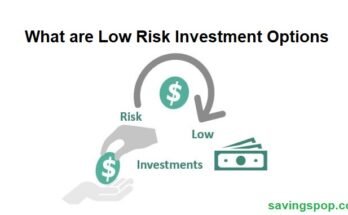Freelancing offers a unique possibility to work independently, pick initiatives, and manipulate some time. However, the financial aspect of freelancing may be challenging. Unlike conventional employment, freelancers face fluctuating income, self-employment taxes, and a loss of business enterprise-provided benefits. This article presents complete financial advice for freelancers, overlaying budgeting, saving, profits control, taxes, retirement planning, insurance, financial equipment, and real-life examples to help you be successful financially.
Financial Advice For Freelancers
Budgeting and Saving
Creating a Budget
Budgeting is very important for freelancers because their income can be irregular. Here’s how to create a budget:
Track Your Income and Expenses:
- Income: Write down all sources of money you earn. This could be from various freelance projects, gigs, or any other sources.
- Expenses: List all your expenses. Break them into categories like rent, utilities, groceries, and business expenses. Use tools like spreadsheets or budget applications to help you stay on track.
Prioritize Essential Expenses:
- Make sure to first allocate money for your essential expenses. These are the things you need to pay for each month, such as rent, utilities (water, gas, electricity), groceries, and necessary business expenses.
Variable Expenses and Savings:
- After covering your essential expenses, set aside money for non-essential expenses (like entertainment, and dining out) and savings. This amount might change based on how much you earn each month.
Review and Adjust Monthly:
- Every month, take time to review your budget. Check if you are spending as planned and adjust where necessary. This helps you stay on target and manage your money better.
Must Read: What Do You Mean By Financial Markets?
Emergency Fund
An emergency fund is essential for freelancers who face unpredictable income and unexpected expenses. Building this fund ensures financial stability during tough times. Here’s how you can create one in easy steps:
Set a Savings Goal
- Aim to shop at least three to six months’ well worth of residing prices. This way in case your monthly expenses are $2,000, your aim must be between $6,000 and $12,000.
- Calculate your monthly prices, which include hire, utilities, groceries, and other essentials. This helps you decide how a good deal you want to store.
Automate Savings
- Set up automatic transfers out of your checking account in your financial savings account. This ensures that you continually save cash while not having to recollect to do it manually.
- Choose a particular quantity to switch frequently, such as weekly or monthly.
Cut Non-Essential Expenses
- Review your spending habits and pick out areas in which you could reduce again. This may include eating out, subscriptions you don’t use, or impulse purchases.
- Redirect the cash you shop from cutting non-critical prices into your emergency fund. This allows you to reach your savings purpose quicker.
Saving Strategies
Effective saving strategies can help freelancers manipulate their finances higher:
- Separate Savings Account: Having a devoted savings account is a powerful manner to ensure you don’t dip into your financial savings for ordinary prices. It creates a psychological barrier that makes it less likely that you can spend that money calmly. Many banks provide excessive interest savings money owed, which can assist your cash grow quicker.
- Save Windfalls: Windfalls are unplanned or unexpected gains. When you receive extra money, whether it’s a birthday gift, a bonus from work, or a tax refund, treat it as an opportunity to grow your savings. Instead of seeing it as extra spending money, immediately transfer it to your savings account. This approach can quickly increase your savings without requiring changes to your everyday budget.
- Regular Contributions: The dependency of saving frequently is fundamental. Set up an automated switch from your bank account to your financial savings account every month. Even if it’s a small quantity, along with $20 per week, it’s going to accumulate over the years. Automatic transfers ensure that saving turns into an everyday part of your economic recurring, and also you might not omit the money because it’s moved earlier than you could spend it.
Income Management
Tracking Income
Freelancers often earn money from different sources, so it’s important to keep track of all your earnings. Here’s how you can do it:
Use Invoicing Software:
- Invoicing software program facilitates you to manage your earnings and invoices.
- It facts the cash you’ve earned and what remains unpaid.
- Examples consist of FreshBooks, QuickBooks, and Wave.
- This makes it less difficult to look at who has paid you and who nonetheless owes you money.
Maintain an Income Spreadsheet:
- Create a detailed spreadsheet to monitor all payments received and pending.
- Use a software program like Microsoft Excel & Google Sheets.
- List all of your income assets and report the quantity you earn from each.
- Include columns for the date you acquired the payment, the client’s call, the provider supplied, and the payment fame (acquired or pending).
- Regularly replace this spreadsheet to keep an accurate record of your income.
Keep Track of All Income Sources:
- Note down every job, project, or gig that brings in money.
- This helps you understand which sources are the most profitable.
Regularly Review Your Earnings:
- Look at your facts weekly or month-to-month to see how tons you are making.
- This enables you to recognize your monetary fitness and plan for your destiny.
Separate Personal and Business Finances:
- Use a separate bank account for your freelance earnings.
- This makes it less complicated to manipulate your cash and simplifies tax training.
Multiple Income Streams
Having multiple income streams approaches creating wealth from diverse resources in preference to counting on an unmarried source of profits. Here’s how you could diversify your income for balance:
- Offer Different Services: Instead of sticking to simply one sort of provider, you could develop your offerings. For example, if you’re an image clothier, you can additionally offer net layout or social media management. This attracts more clients and reduces the risk if one market slows down.
- Passive Income: Creating passive income involves making money with less active involvement over time. Examples include selling online courses, e-books, or digital products. Once set up, they can generate income even when you’re not actively working. This diversifies your income sources and provides financial stability.
- Benefits of Diversification: Diversifying earnings streams spreads danger and allows management fluctuations in profits. If one income supply is slow, others can compensate. It also opens up possibilities for growth and innovation as you discover new markets and merchandise.
- Managing Multiple Streams: To effectively manage multiple income streams, organize your time and resources efficiently. Prioritize tasks, set realistic goals, and monitor each stream’s performance regularly. Tools like budgeting apps can help track income and expenses across different streams.
- Continuous Learning and Adaptation: Stay up to date with enterprise tendencies and adapt your skills and services for that reason. This ensures your income streams remain relevant and competitive inside the marketplace.
Invoicing and Payments
Managing invoices and bills efficaciously is important for maintaining a regular cash drift. Here’s a simple guide to help you apprehend and put into effect powerful invoicing and payment practices:
Create Clear Invoices:
- Detailed Information: Ensure your invoices are distinct and clean. Include all vital information which includes the date, invoice variety, your commercial enterprise call and speak to facts, an outline of the products or services supplied, the amount due, and the fee phrases.
- Payment Terms: Clearly kingdom the payment terms on the invoice. This includes the due date, applicable fee techniques, and any late payment penalties. This enables clients to recognize how and the way to pay, reducing confusion and delays.
Send Invoices Promptly:
- Timely Delivery: Send your invoices as soon as the work is finished or the product is added. Prompt invoicing will increase the probability of having paid on time and keep your coin flow constant.
Follow Up on Overdue Payments:
- Regular Follow-Ups: Regularly check your records for late payments. Send pleasant reminders to clients who have not paid by the due date. Consistent compliance can encourage clients to pay quickly.
- Professional Communication: When following up, keep your communication professional and polite. Remind the client of the invoice details and the original payment terms. Offer to assist if they have any issues or questions regarding the payment.
Use Invoicing Software:
- Automated Tools: Consider the use of invoicing software to automate the manner. This equipment can generate invoices, ship them to customers, and remind you of overdue bills. Automation saves time and decreases the chance of human mistakes.
- Tracking and Reporting: Invoicing software frequently consists of capabilities for monitoring payments and generating economic reports. This equipment can offer precious insights into your coin float and help you make informed commercial enterprise decisions.
Benefits of Efficient Invoicing and Payment Management:
- Improved Cash Flow: By sending clear invoices and following up on payments, you ensure a steady inflow of cash, which is essential for covering charges and investing in growth.
- Professionalism: Clear and well-timed invoicing reflects professionalism and reliability, strengthening your dating with customers.
- Time Savings: Automated invoicing and follow-up strategies save time, permitting you to focus on different important elements of your enterprise.
Taxes and Legal Considerations
Understanding Taxes
Freelancers deal with their taxes differently than personnel. Here’s an easy breakdown:
- Self-Employment Tax: Freelancers need to pay self-employment tax, covering Social Security and Medicare. Unlike conventional employees where those taxes are cut up with the employer, freelancers pay the full quantity themselves. It’s usually around 15.3% of your income.
- Quarterly Estimated Taxes: Since freelancers don’t have taxes withheld from paychecks, they pay anticipated taxes quarterly to the IRS. This covers profits tax and self-employment tax. To avoid consequences, estimate your annual earnings and deductions, then divide that by 4 to know how a good deal to pay in every area.
- Tax Deductions: Freelancers can deduct business expenses like domestic office prices, devices, journeys, and health insurance rates from their taxable income. Keeping specified data on prices is essential for accurate deductions.
- Tax Forms: Freelancers commonly use Form 1040 and Schedule SE to document profits and self-employment tax. Depending on your scenario, extra forms can be required.
- Seek Professional Advice: Tax guidelines for freelancers can be complicated. Consider consulting a tax expert or the usage of tax software to ensure compliance and maximize deductions.
Deductions and Write-offs
To lower how much tax you owe, deductions and write-offs are key:
- Home Office Deduction: If you earn a living from home and feature a designated area for paintings, you could deduct part of your property-related prices. This consists of hire, utilities, and other charges related to retaining your workspace.
- Business Expenses: You can deduct prices that are crucial for strolling your commercial enterprise. This covers things like workplace materials, tour prices for commercial enterprise journeys, prices for advertising and marketing your services or products, and another charge at once linked to your enterprise operations.
Maximizing those deductions reduces your taxable profits. It’s vital to hold certain statistics and receipts for those prices to confirm your claims all through tax filing. By taking advantage of those deductions, freelancers and small business owners can significantly decrease their tax burden and preserve extra income for enterprise growth and private price range. Always seek advice from a tax professional to ensure you are efficiently making use of these deductions according to current tax laws.
Legal Structure
Choosing the right prison shape in your business influences how you pay taxes and your legal responsibility:
- Sole Proprietorship: This is the most effective form where you run the business yourself. It’s smooth to begin, however, you’re individually responsible for any debts or criminal issues. This means your property like financial savings or home will be at chance if something goes wrong.
- LLC (Limited Liability Company): An LLC gives you liability protection, so your assets commonly can’t be taken to cover business debts or claims. It’s a piece greater complex to install than a sole proprietorship but gives extra security. LLCs additionally provide flexibility in how you’re taxed, allowing you to pick between being taxed as a sole proprietorship, partnership, or organization based on what’s best for your situation.
Retirement Planning
Retirement Options
Freelancers, who frequently lack company-supplied retirement benefits like 401(ok)s, can nonetheless keep for retirement through numerous alternatives:
- Traditional IRA: This retirement account allows freelancers to make contributions to pre-tax profits, lowering their taxable profits for the year. The cash grows tax-deferred till withdrawal, typically throughout retirement. Withdrawals are then taxed as normal earnings. It’s appropriate for freelancers trying to lower their modern taxable income even as saving for the future.
- Roth IRA: With a Roth IRA, freelancers contribute after-tax bucks, meaning they’ve already paid taxes on that cash. The advantage comes at retirement whilst withdrawals, which include earnings, are tax-loose, provided certain conditions are met. This choice is tremendous for freelancers expecting to be in a higher tax bracket throughout retirement or folks who want tax-unfastened flexibility in their withdrawals.
- SEP-IRA: Designed for freelancers with higher earnings or folks who run their businesses, a SEP-IRA permits larger contributions than traditional IRAs. Contributions are tax-deductible, & the account grows tax-deferred until withdrawal. SEP-IRAs are positive for freelancers seeking to keep substantially for retirement even as lowering their taxable profits.
Long-term Financial Planning
Long-term financial planning involves preparing for your future financial stability and goals. Here’s how to do it:
- Set Retirement Goals: Decide how much money you need for retirement based on your lifestyle and plans. This helps you set a target to work towards.
- Regular Contributions: Save money regularly for retirement by contributing to retirement accounts like 401(k)s or IRAs. Consistent contributions over time help your savings grow.
- Investment Strategy: Spread out your investments across different types of assets (like stocks, bonds, and real estate) to manage risks and aim for growth. Diversifying helps balance potential gains and losses.
By making plans lengthy-term, you’re securing your economic future, making sure you have sufficient money for retirement, and making your money paintings tougher through smart investments. Regularly reviewing your plan lets you adjust as wanted, making sure you live on course to fulfill your monetary dreams.
Insurance and Risk Management
Health Insurance
Health insurance is crucial for freelancers to protect against medical expenses. Here’s a simple breakdown:
- Marketplace Plans: Freelancers can find health insurance options through the Health Insurance Marketplace. This platform helps compare plans and choose coverage that suits individual needs. It often offers subsidies to make insurance more affordable.
- Freelancer Unions: Certain freelancer unions provide group health insurance plans. These plans leverage group buying power to offer comprehensive coverage at potentially lower costs. They are tailored to meet the needs of freelancers who may not have access to employer-provided health benefits.
Having medical insurance guarantees freelancers can access medical care without dealing with massive economic burdens, selling both physical well-being and financial stability.
Business Insurance
Business insurance is essential for protecting your commercial enterprise from financial risks. Here’s an easy breakdown:
- Liability Insurance: This covers you if someone sues your commercial enterprise for negligence, accidents, or mistakes. For instance, if a purchaser slips and gets hurt in your shop, liability insurance enables cowl legal fees and damages.
- Professional Indemnity Insurance: Also called Errors and Omissions coverage, this protects professionals (like specialists or advisors) from claims of negligence or mistakes that result in monetary loss for clients. For example, if an economic guide gives wrong investment advice leading to losses, this insurance covers legal defense fees and damages.
These types of insurance are important due to the fact they protect your enterprise from surprising prices due to felony claims. They offer peace of mind, permitting you to recognize going for walks your commercial enterprise without disturbing about ability complaints draining your sources.
Risk Management
Risk management helps freelancers and businesses handle financial uncertainties wisely. Here’s how:
- Diversify Clients: Instead of depending on just one client, work with multiple clients. This spreads the risk of losing income if one client stops giving projects or payments. It also opens up opportunities for more work and income streams.
- Contracts: Always use contracts for every mission. Contracts outline what paintings you may do, how a lot you may receive a commission, and what you will deliver. This clarity facilitates keeping off misunderstandings and guarantees you get paid for your paintings.
By diversifying clients and the usage of contracts, freelancers and corporations can defend themselves financially and perform extra easily, even when confronted with sudden changes in patron relationships or task consequences.
Financial Tools and Resources
Budgeting Apps
Budgeting apps like Mint and YNAB are valuable equipment for handling your money successfully:
- Mint: This app helps you preserve the song of which your cash is going through tracking your spending and categorizing charges. It additionally lets you set up budgets based totally on your profits and spending conduct. Mint gives insights into your financial health, such as credit score tracking and personalized pointers for saving money.
- YNAB (You Need A Budget): YNAB focuses on assigning each dollar you earn to a selected reason, making sure you prioritize spending and financial savings dreams. It encourages proactive economic making plans by emphasizing budgeting for future prices rather than simply tracking past spending. YNAB also gives instructional resources and live workshops to help customers improve their monetary literacy and budgeting abilities.
Accounting Software
Accounting software helps manage finances easily:
- QuickBooks: An entire tool for monitoring profits, fees, and preparing taxes. It simplifies bookkeeping duties, making it less complicated to screen your monetary transactions and live prepared.
- FreshBooks: User-pleasant software designed for invoicing and expense tracking. It streamlines billing and facilitates you to maintain music of where your cash is going, making it perfect for freelancers and small agencies.
Financial Advisors
Financial advisors help with complex financial planning:
- Hire a Financial Planner: A licensed monetary planner makes a specialty in dealing with budgets, particularly for freelancers who regularly have specific earnings streams. They provide personalized advice on saving, making an investment, and dealing with taxes to ensure financial balance and growth.
- Consult Online Platforms: Platforms like Upwork offer admission to freelance economic advisors. These advisors may be hired for unique financial wishes, including budgeting, retirement planning, or funding techniques.
Conclusion
Financial advice for freelancers is essential for achievement. Start by placing apart cash for taxes-intention for around 30% of your profits. Create finances to tune your profits and fees. Save a part of your income for emergencies and future desires. Consider establishing a separate financial institution account in your commercial enterprise budget. Don’t overlook putting money into your retirement via contributing to an IRA or similar plan. Finally, usually invoice right away and comply with up on past due bills. With cautious making plans and desirable conduct, you can revel in a stable and successful freelancing career.
Summary of Key Points
Freelancers should follow these key financial tips:
- Budgeting: Make a budget that you update regularly. List your income and expenses to manage your money better.
- Saving: Set aside money regularly for emergencies. This helps you cover unexpected costs without stress.
- Income Management: Track all the money you earn. Try to have different sources of income to be more stable. Make sure you send invoices on time to get paid.
- Taxes: Understand what taxes you need to pay. Look into deductions that can lower your tax bill.
- Retirement: Plan for your future by saving for retirement now. There are special ways freelancers can save for retirement.
- Insurance: Get insurance to cover your health and business. It protects you from big costs if something goes wrong.
- Financial Tools: Use apps or software to help you budget and manage your money. It makes keeping track of stuff easier.
Call to Action
Encourage proactive financial management:
- Start Today: Begin implementing these financial tips today to secure your financial future.
- Seek Help: Don’t hesitate to seek professional financial advice if needed.
Additional Resources
Books and Blogs
Expand your financial knowledge:
- Books: “The Freelancer’s Bible” by Sara Horowitz, “Your Money or Your Life” by Vicki Robin.
- Blogs: Freelancers Union Blog, The Penny Hoarder.
Online Courses
Enhance your financial skills:
- Personal Finance for Freelancers: Available on platforms like Coursera or Udemy.
- Tax Preparation: Courses to understand freelance tax obligations.




